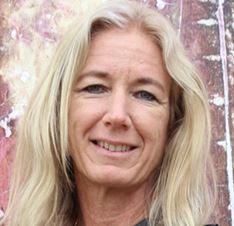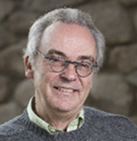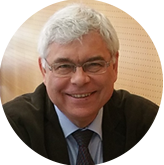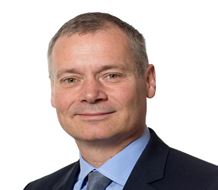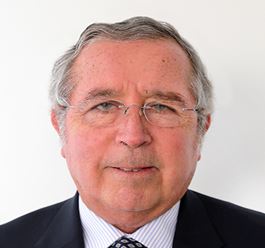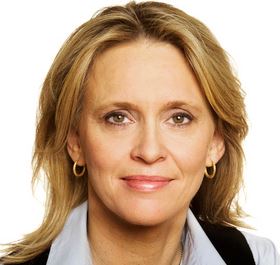Partnership Dialogue 6 - Increasing scientific knowledge, and developing research capacity and transfer of marine technology
Thu 08 Jun 2017, 3.00 pm — Wed 03 Feb 2021, 5.00 pmBackground
Introduction
Marine science plays an important role in the fisheries management process, including for the adoption of conservation and management measures. Science also has an important role to play in managing other human pressures on the marine environment, including cumulative impacts from local pressures such as pollution, coastal development and resources extraction that act together with global impacts of climate change. Technology can help improve outcomes for many of the targets of SDG 14, for example, to help deliver more efficient and sustainable fishing methods, enhance monitoring and surveillance of fishing activities, facilitate pollution prevention and clean-up, and enhance marine spatial planning. It can also allow for better research and protection of the natural and cultural heritage of the oceans. Therefore, these issues in relations to SDG 14 can be approached from multiple perspectives.
Scientific understanding of the ocean is fundamental to carry out effective management of human activities that affect the marine environment and the biota that it contains. Scientific understanding is also essential to predict or forecast, mitigate and guide the adaptation of societies to cope with many ways the ocean affects human lives and infrastructures at different spatial and temporal scales.
Ocean research and observation activities cover a wide range of interests, sectors, users and uses, and disciplines. All of these activities are of great importance in reaching the goal embedded in UNCLOS to promote the equitable and efficient utilization of ocean resources, the conservation of their living resources, and the study, protection and preservation of the marine environment.
The basis for various maritime industries is a strong marine science and technology capability, and the development of human resources is essential to ensure a better understanding of marine science and technology and their potential. States need to have not only full-time researchers but also technical support staff who services the equipment, computers and ships. Enhancing the skills and the knowledge base of academics, scientists, managers, field practitioners and local communities is critical.
The General Assembly of the United Nations (UNGA) has consistently called upon States and international financial institutions to continue to strengthen capacity-building activities in the field of marine scientific research by, inter alia, training personnel to develop and enhance relevant expertise, providing the necessary equipment, facilities and vessels and transferring environmentally sound technologies.
UNCLOS, in its Part XIII, provides the legal framework for the conduct of marine scientific research. It requires States and competent international organizations to promote and facilitate the development and conduct of marine scientific research, as well as to promote international cooperation in marine scientific research. UNCLOS also provides for the obligation to make available by publication and dissemination information on proposed major programmes and their objectives as well as knowledge resulting from marine scientific research.
Transfer of marine technology (TMT) is often considered as a tool to support capacity development. Under UNCLOS, Part XIV calls for inter alia all States to cooperate in accordance with their capabilities to promote actively the development and transfer of marine science and marine technology on fair and reasonable terms and conditions in order to help developing countries to access the benefits of oceans and seas. In addition to the 2030 Agenda for Sustainable Development, the need to facilitate TMT for countries to achieve sustainable use of the oceans and seas and their resources is also recognized by a number of international instruments related to sustainable development.
Co-chairs
- H.E. Ms. Thorgerdur Katrin Gunnarsdottir, Minister of Fisheries and Agriculture, Iceland
- H.E. Mr. Héctor Soldi Soldi, Vice Minister for Fisheries and Aquaculture, Peru
Moderator
- Mr. Johan Kuylenstierna, Executive Director, Stockholm Environment Institute, Sweden
Panellists
- Mr. Vladimir Ryabinin, Executive Secretary of the Intergovernmental Oceanographic Commission of UNESCO
- Mr. Mark Abbott, Director and President, Woods Hole Oceanographic Institution
- Ms. Patricia Andrea Miloslavich de Klein, Professor of Simon Bolivar University and University of Tasmania, Venezuela
- Mr. Amos Barkai, Co-Owner and CEO of OLSPS, South Africa
Registered List of Participants
States
First preference (speaking slot guaranteed)
- Finland (M)
- Portugal (M)
- United States (CD)
- Bangladesh (TBD)
Second preference (possible speaking slot)
- Fiji (M)
- Somalia (M)
- Brazil (VM)
- Canada (CD)
- China (CD)
- Monaco (CD)
- Saint Vincent and the Grenadines (CD)
- United Kingdom (CD)
Other participants and observers
- Inter-American Institute for Global Change Research
- Economic and Social Commission for Asia and the Pacific
- United Nations University
- World Meteorological Organization
- China Energy Fund Committee
- Deep Ocean Stewardship Initiative
- Living Islands Non-Profit
- World Ocean Council
- Business and Industry Major Group


